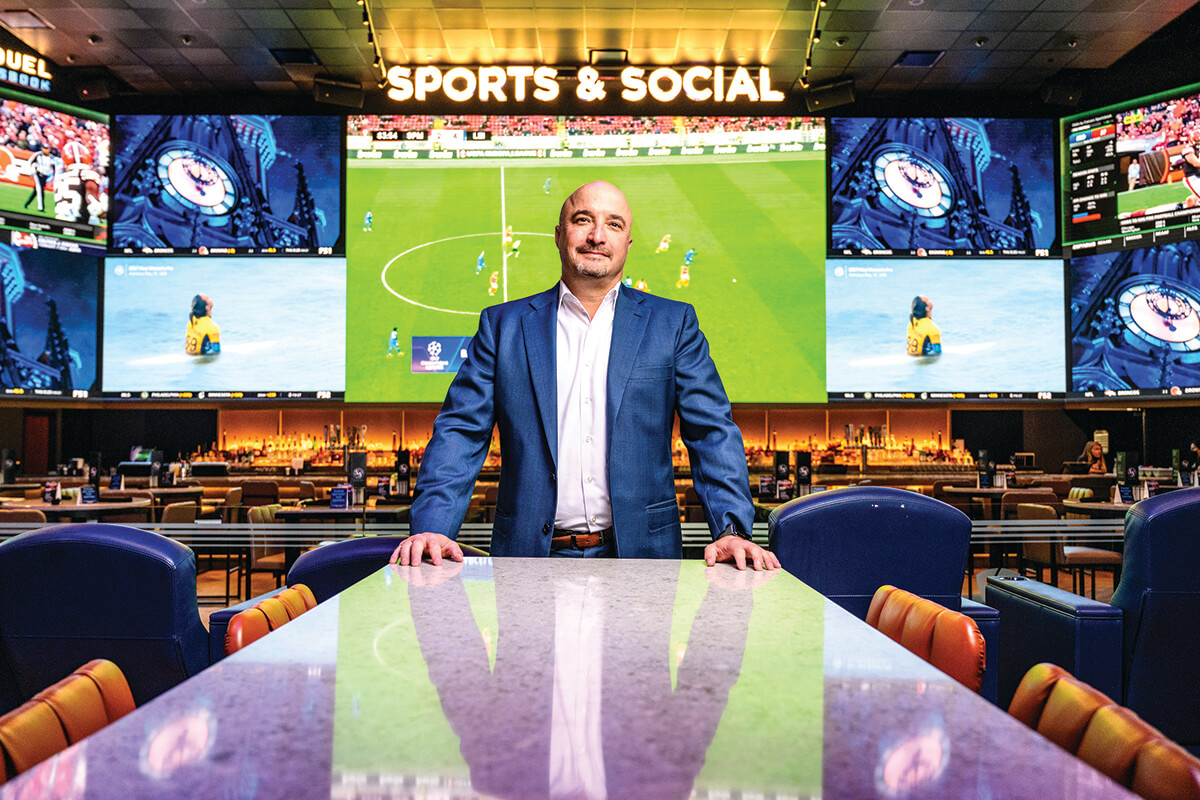Business & Development
Sports Wagering Goes Legal in Maryland
But when can we realistically expect the state to begin allowing the practice at licensed venues?

Gone are the days of the bookie, those unseen characters who took bets from gamblers on pay-phones or in shady backrooms at horse tracks. Today, sports betting looks different—fancy, welcoming, and public.
Walk onto the carpeted casino floor at Live! Casino & Hotel in Arundel Mills, for instance. Over the tops of the slot machines and in prime real estate, a giant blue sign for FanDuel, one of the country’s top sports betting brands, stands out above a row of betting windows. And below 40 high-def televisions mounted above a fully stocked bar, there are more chances to try other wagering machines. This is the setting of Sports & Social, a $12-million, 200-plus-seat upscale sports bar that opened in April—and is about to become one of the state’s first legal sports betting venues.
“We’re ready,” says Rob Norton, president of Live! and Cordish Global Gaming, pictured, taking a seat at a high-top table overlooking the 13,000-square-foot space, with its dining booths, royal blue Bud Light taps, and largest TV tuned to the NFL Network. “Once the state processes are done, we’re ready to go.”
Of course, it’s been legal to wager on sports in Las Vegas since 1949. But recently, nearly 30 other states have adopted the practice. And now Maryland is hopping on the gravy train, too. Possibly by the end of the year—and in time for the NFL playoffs come January—the state will offer anyone 21 and over the chance to win or lose money legally gambling on sporting events at licensed venues like Sports & Social and the soon-to-come Caesars Sportsbook at the downtown Horseshoe Casino. (Legal online betting will come later.)
Similar to how marijuana lost its fully illegal status in the state a decade ago, voters overwhelmingly supported the idea of legal sports betting during the state elections of November 2020, passing a referendum that authorized it as long as a portion of the revenue would be used to fund public education. In May 2021, Governor Larry Hogan signed that legislation into law. Sports betting revenue will be taxed at 15 percent, with a projected $15 million or more each year to be invested in state schools.
In August, a new state commission said 17 businesses would be eligible for Class A retail sports wagering licenses—like the major casinos, as well as pro sports venues (although no sports books are planned at any of the stadiums yet), plus horse-racing facilities, off-track betting venues, and two commercial bingo halls. On November 18, the Sports Wagering Application Review Commission said five venues—Live!, the Horseshoe, MGM National Harbor, Hollywood Casino, and Ocean Downs Casino—could go live with in-person betting in 30 to 45 days, pending testing of systems with the state, including live demonstrations.
“We’re excited about it,” says Norton, who grew up in the Bahamas and Atlantic City as the son of a casino pioneer. “We expect that we’ll see a new crowd in here.”